Quotes & Sayings About The Oppression Of The Poor
Enjoy reading and share 36 famous quotes about The Oppression Of The Poor with everyone.
Top The Oppression Of The Poor Quotes
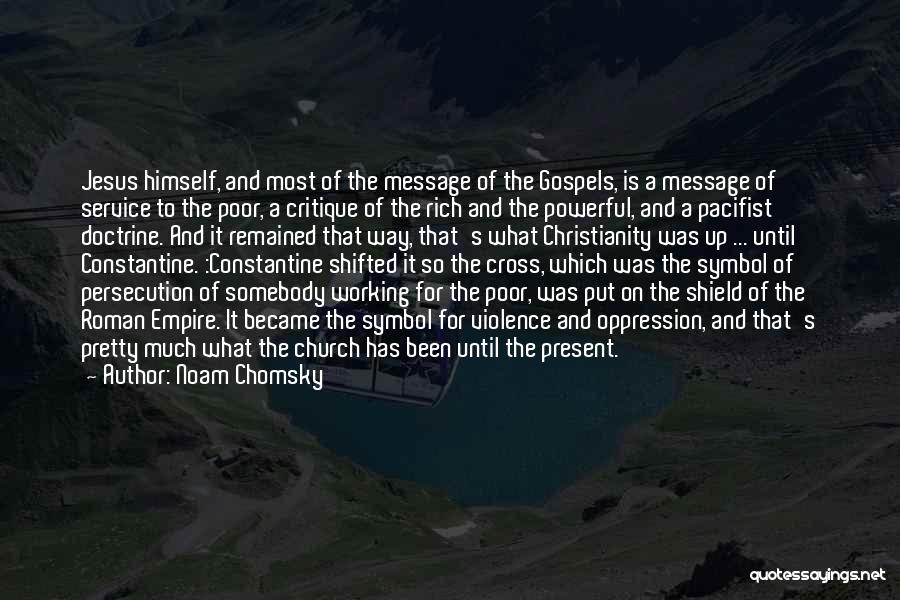
Jesus himself, and most of the message of the Gospels, is a message of service to the poor, a critique of the rich and the powerful, and a pacifist doctrine. And it remained that way, that's what Christianity was up ... until Constantine. :Constantine shifted it so the cross, which was the symbol of persecution of somebody working for the poor, was put on the shield of the Roman Empire. It became the symbol for violence and oppression, and that's pretty much what the church has been until the present. — Noam Chomsky
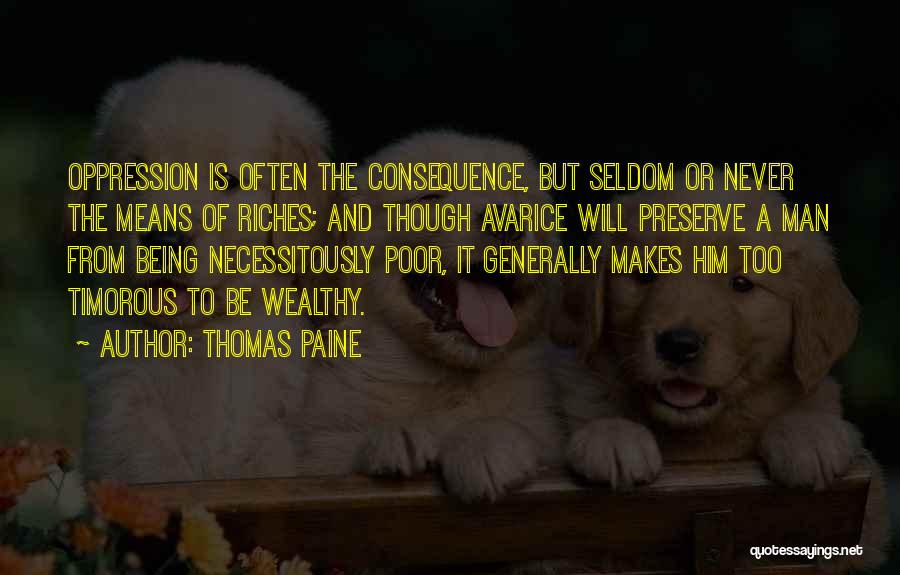
Oppression is often the consequence, but seldom or never the means of riches; and though avarice will preserve a man from being necessitously poor, it generally makes him too timorous to be wealthy. — Thomas Paine

Traditionally Marxism attracts the oppressed. This, however, is not the case in the Arab nation ... The socialist programs in Arab history did not always come from the poor, but from men who had known no oppression and became the leaders of the poor. The Arab nation has never been as class-conscious as other nations. — Saddam Hussein
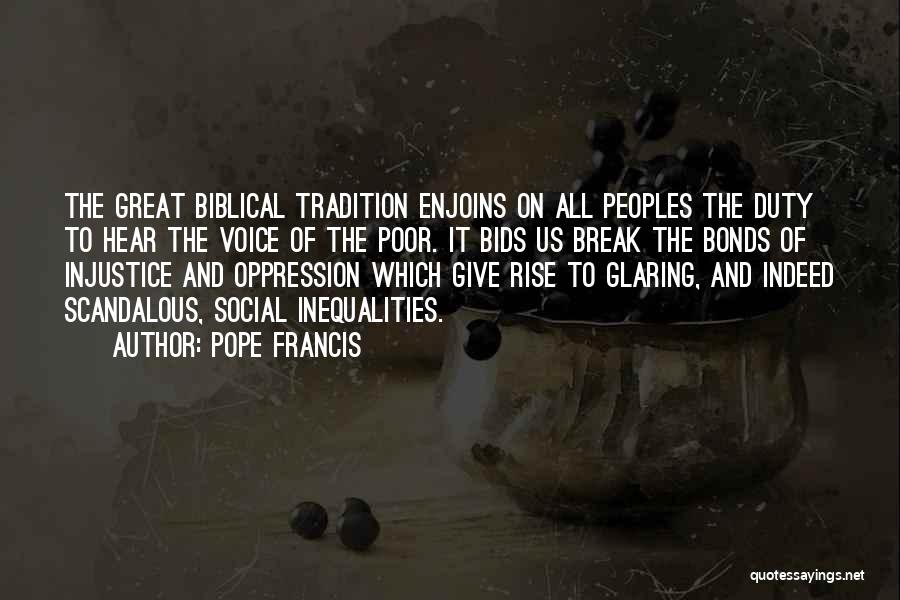
The great biblical tradition enjoins on all peoples the duty to hear the voice of the poor. It bids us break the bonds of injustice and oppression which give rise to glaring, and indeed scandalous, social inequalities. — Pope Francis
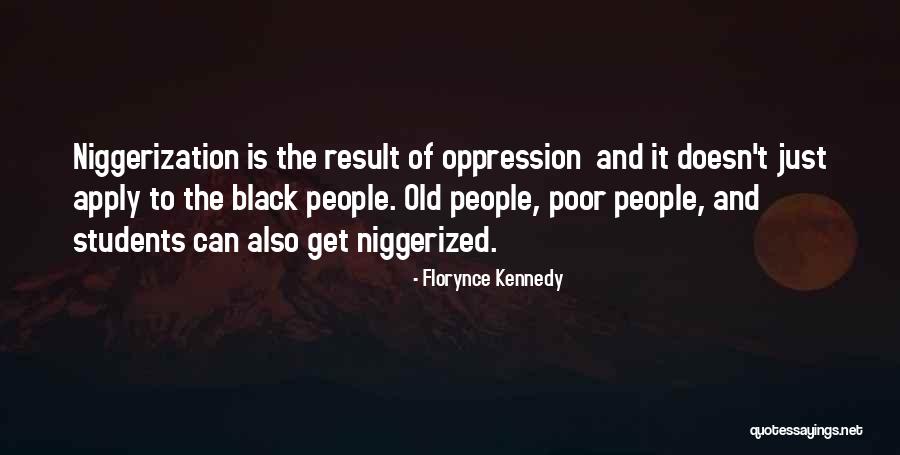
Niggerization is the result of oppression
and it doesn't just apply to the black people. Old people, poor people, and students can also get niggerized. — Florynce Kennedy
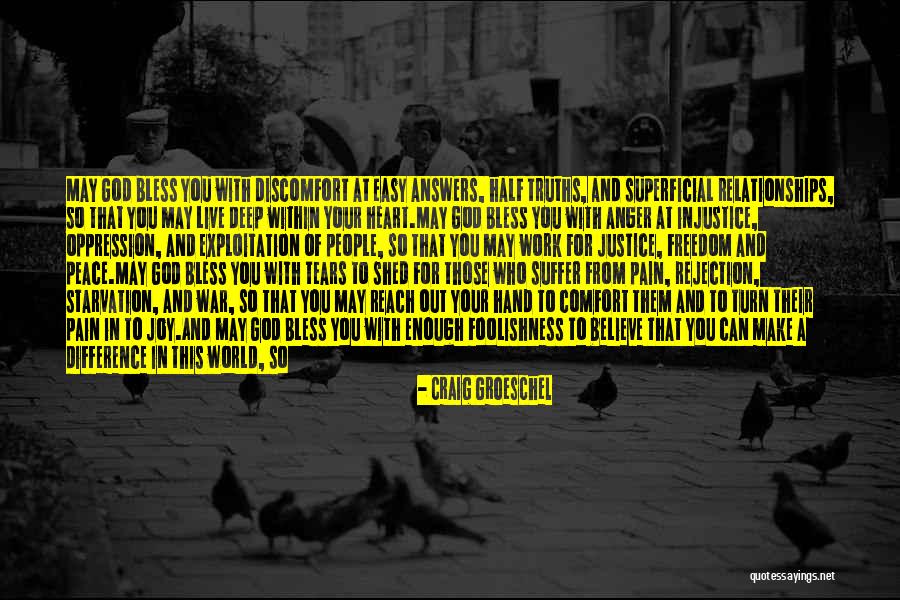
May God bless you with discomfort at easy answers, half truths, and superficial relationships, so that you may live deep within your heart.
May God bless you with anger at injustice, oppression, and exploitation of people, so that you may work for justice, freedom and peace.
May God bless you with tears to shed for those who suffer from pain, rejection, starvation, and war, so that you may reach out your hand to comfort them and to turn their pain in to joy.
And may God bless you with enough foolishness to believe that you can make a difference in this world, so that you can do what others claim cannot be done. To bring justice and kindness to all our children and the poor.
Amen. — Craig Groeschel
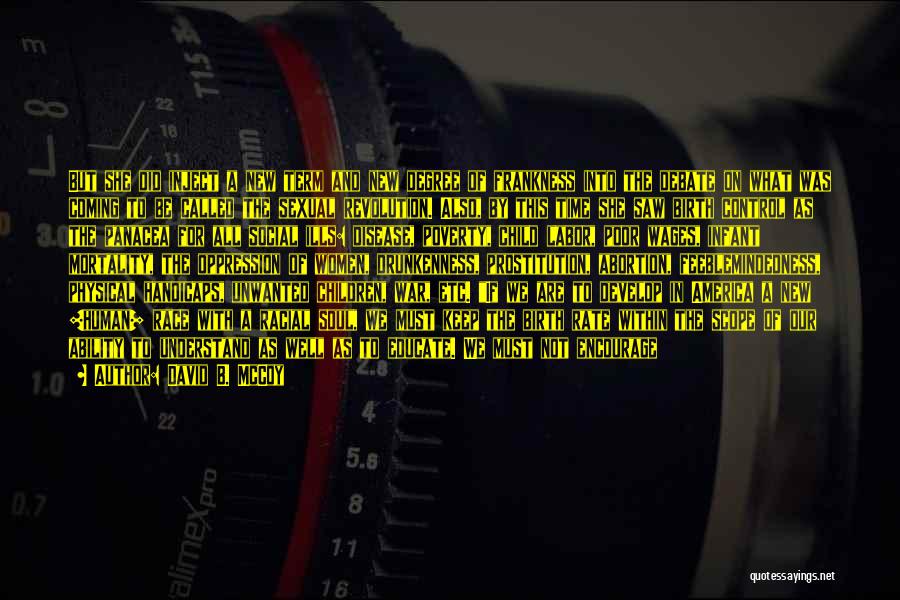
But she did inject a new term and new degree of frankness into the debate on what was coming to be called the sexual revolution. Also, by this time she saw birth control as the panacea for all social ills: disease, poverty, child labor, poor wages, infant mortality, the oppression of women, drunkenness, prostitution, abortion, feeblemindedness, physical handicaps, unwanted children, war, etc. "If we are to develop in America a new [human] race with a racial soul, we must keep the birth rate within the scope of our ability to understand as well as to educate. We must not encourage reproduction beyond our capacity to assimilate our numbers so as to make the coming generation into such physically fit, mentally capable, socially alert individuals as are the ideal of a democracy" (Sanger, 1920). — David B. McCoy
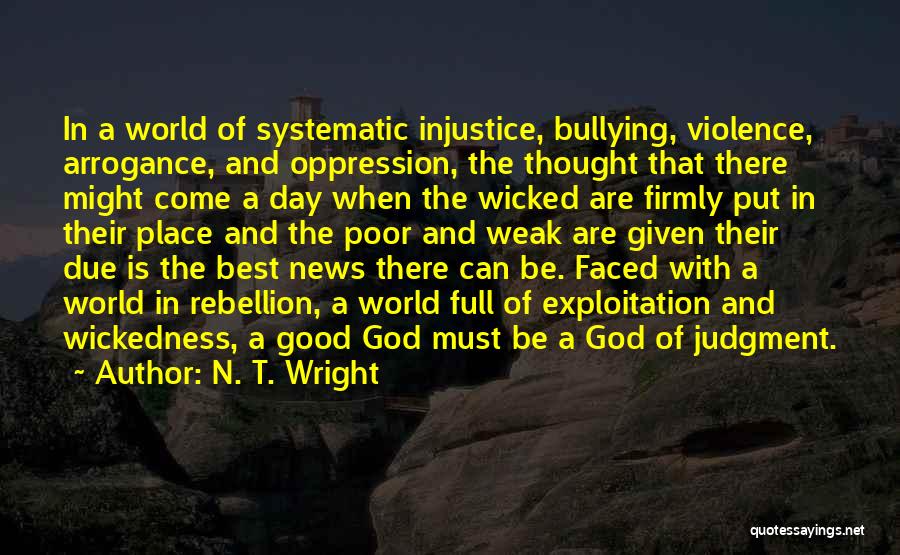
In a world of systematic injustice, bullying, violence, arrogance, and oppression, the thought that there might come a day when the wicked are firmly put in their place and the poor and weak are given their due is the best news there can be. Faced with a world in rebellion, a world full of exploitation and wickedness, a good God must be a God of judgment. — N. T. Wright
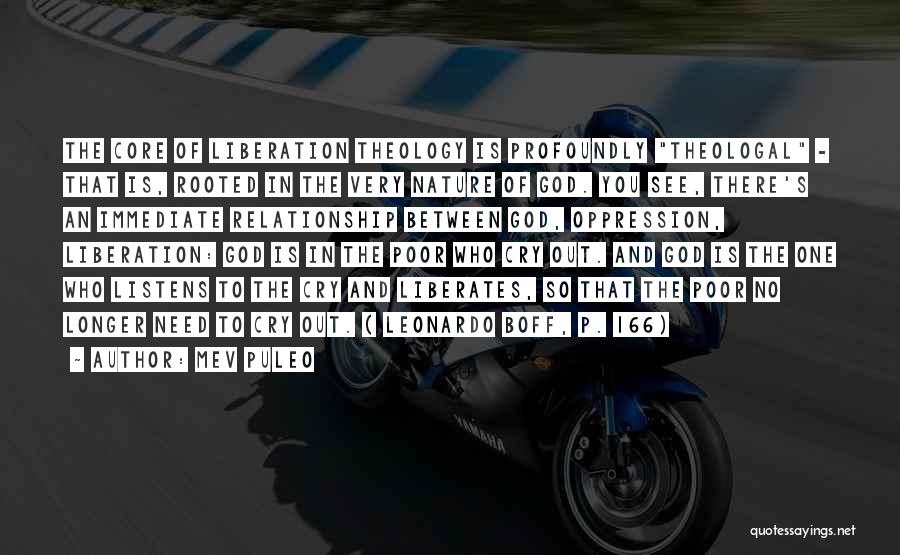
The core of liberation theology is profoundly "theologal" - that is, rooted in the very nature of God. You see, there's an immediate relationship between God, oppression, liberation: God is in the poor who cry out. And God is the one who listens to the cry and liberates, so that the poor no longer need to cry out. ( Leonardo Boff, p. 166) — Mev Puleo
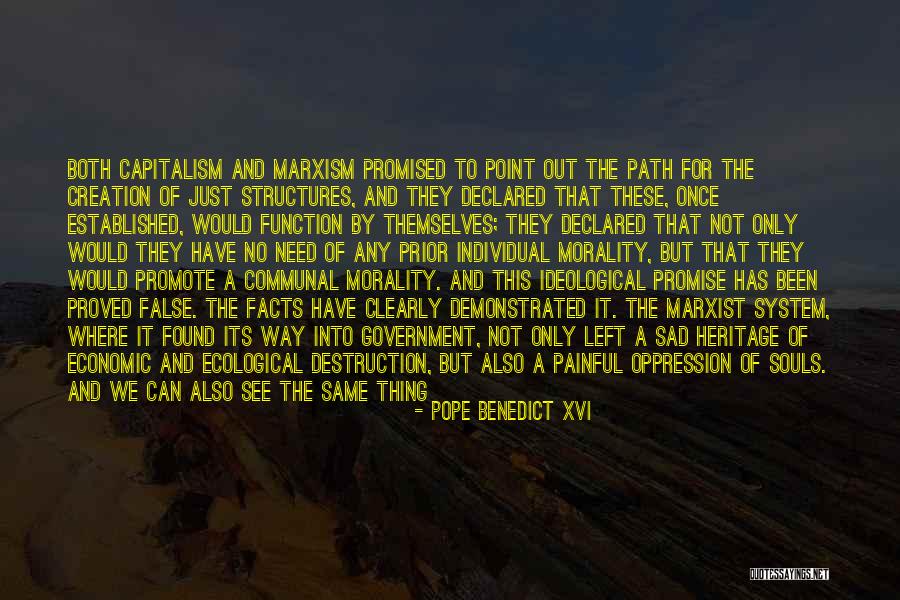
Both capitalism and Marxism promised to point out the path for the creation of just structures, and they declared that these, once established, would function by themselves; they declared that not only would they have no need of any prior individual morality, but that they would promote a communal morality. And this ideological promise has been proved false. The facts have clearly demonstrated it. The Marxist system, where it found its way into government, not only left a sad heritage of economic and ecological destruction, but also a painful oppression of souls. And we can also see the same thing happening in the West, where the distance between rich and poor is growing constantly, and giving rise to a worrying degradation of personal dignity through drugs, alcohol and deceptive illusions of happiness. — Pope Benedict XVI
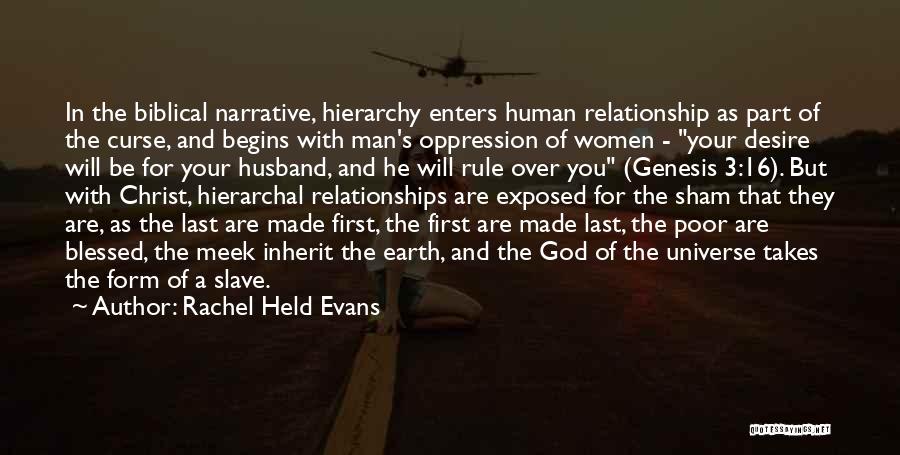
In the biblical narrative, hierarchy enters human relationship as part of the curse, and begins with man's oppression of women - "your desire will be for your husband, and he will rule over you" (Genesis 3:16). But with Christ, hierarchal relationships are exposed for the sham that they are, as the last are made first, the first are made last, the poor are blessed, the meek inherit the earth, and the God of the universe takes the form of a slave. — Rachel Held Evans
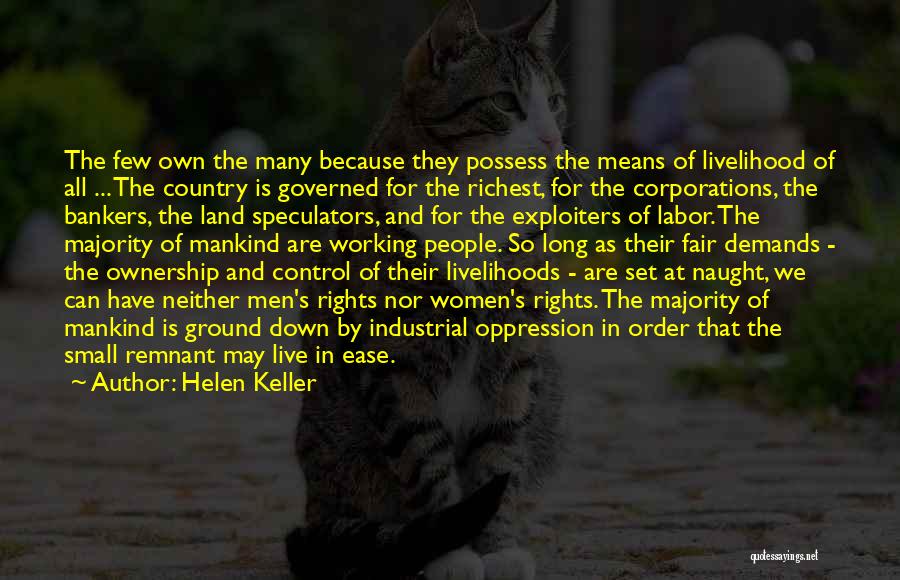
The few own the many because they possess the means of livelihood of all ... The country is governed for the richest, for the corporations, the bankers, the land speculators, and for the exploiters of labor. The majority of mankind are working people. So long as their fair demands - the ownership and control of their livelihoods - are set at naught, we can have neither men's rights nor women's rights. The majority of mankind is ground down by industrial oppression in order that the small remnant may live in ease. — Helen Keller
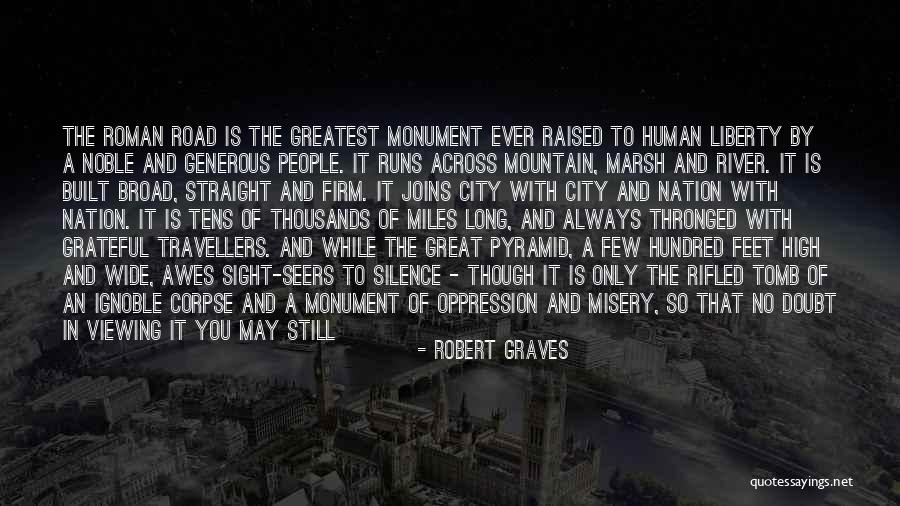
The Roman Road is the greatest monument ever raised to human liberty by a noble and generous people. It runs across mountain, marsh and river. It is built broad, straight and firm. It joins city with city and nation with nation. It is tens of thousands of miles long, and always thronged with grateful travellers. And while the Great Pyramid, a few hundred feet high and wide, awes sight-seers to silence - though it is only the rifled tomb of an ignoble corpse and a monument of oppression and misery, so that no doubt in viewing it you may still seem to hear the crack of the taskmaster's whip and the squeals and groans of the poor workmen struggling to set a huge block of stone into position - — Robert Graves
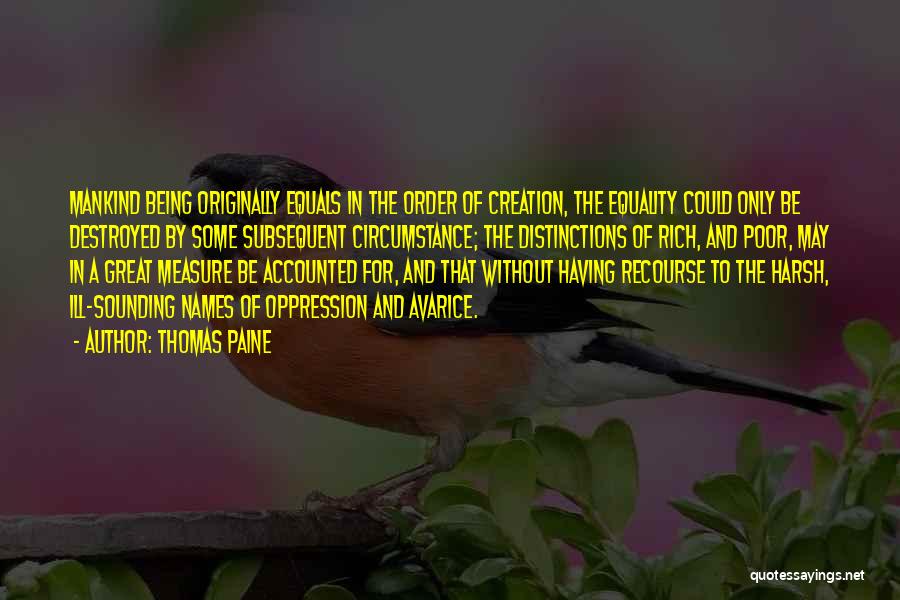
Mankind being originally equals in the order of creation, the equality could only be destroyed by some subsequent circumstance; the distinctions of rich, and poor, may in a great measure be accounted for, and that without having recourse to the harsh, ill-sounding names of oppression and avarice. — Thomas Paine
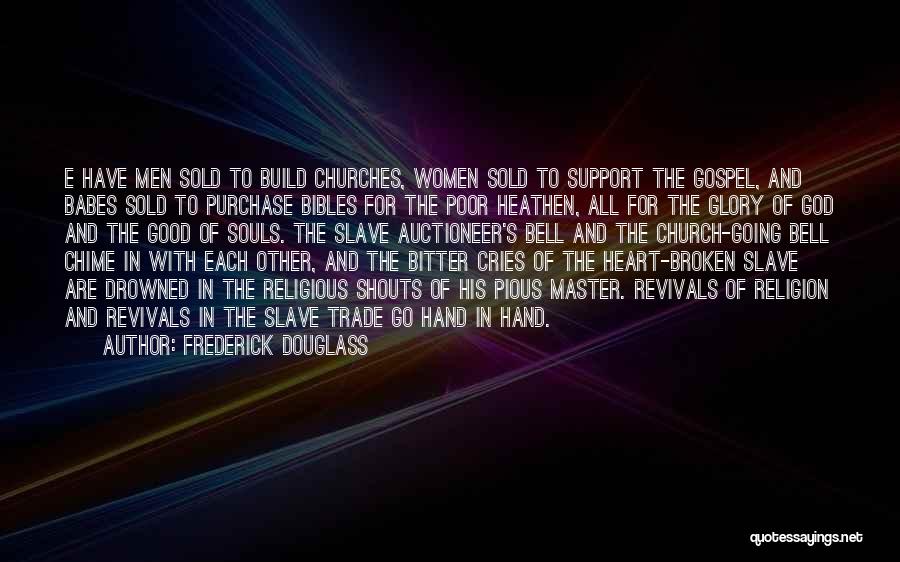
E have men sold to build churches, women sold to support the gospel, and babes sold to purchase Bibles for the poor heathen, all for the glory of God and the good of souls. The slave auctioneer's bell and the church-going bell chime in with each other, and the bitter cries of the heart-broken slave are drowned in the religious shouts of his pious master. Revivals of religion and revivals in the slave trade go hand in hand. — Frederick Douglass
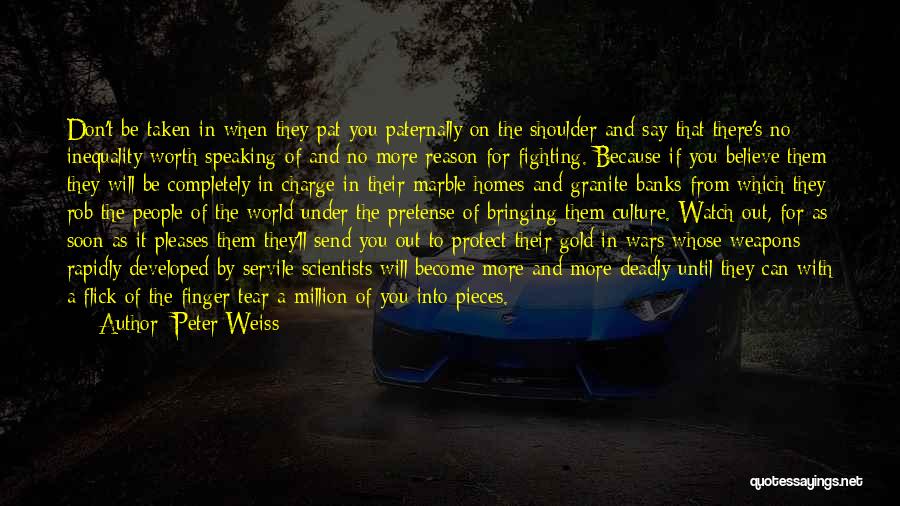
Don't be taken in when they pat you paternally on the shoulder and say that there's no inequality worth speaking of and no more reason for fighting. Because if you believe them they will be completely in charge in their marble homes and granite banks from which they rob the people of the world under the pretense of bringing them culture. Watch out, for as soon as it pleases them they'll send you out to protect their gold in wars whose weapons rapidly developed by servile scientists will become more and more deadly until they can with a flick of the finger tear a million of you into pieces. — Peter Weiss
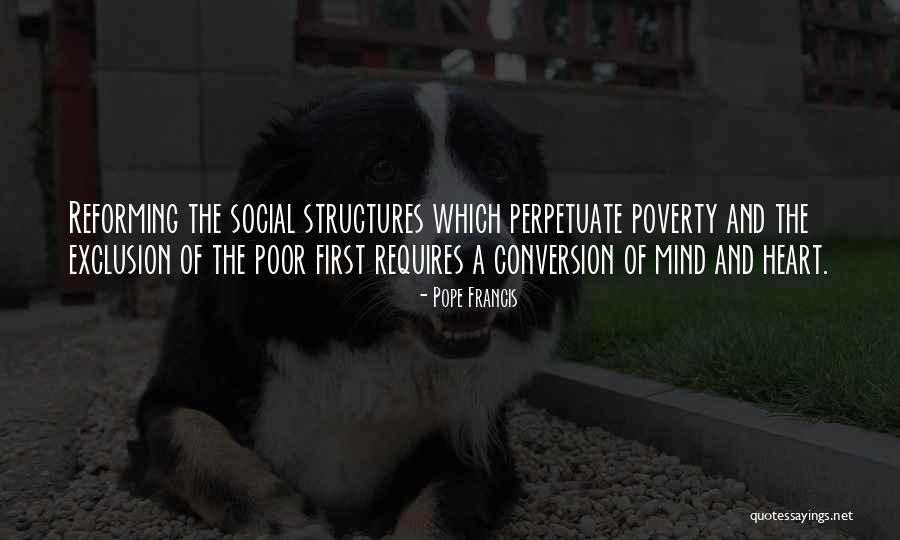
Reforming the social structures which perpetuate poverty and the exclusion of the poor first requires a conversion of mind and heart. — Pope Francis
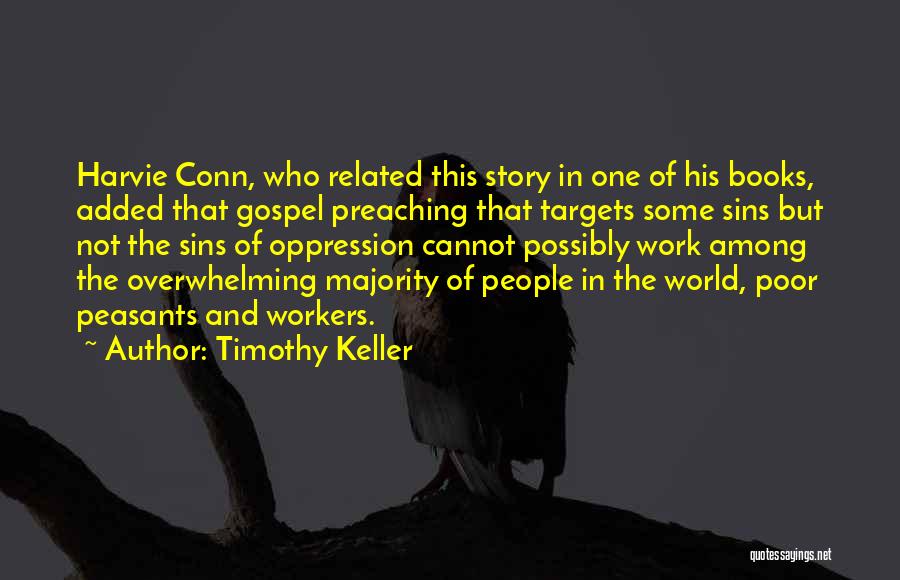
Harvie Conn, who related this story in one of his books, added that gospel preaching that targets some sins but not the sins of oppression cannot possibly work among the overwhelming majority of people in the world, poor peasants and workers. — Timothy Keller
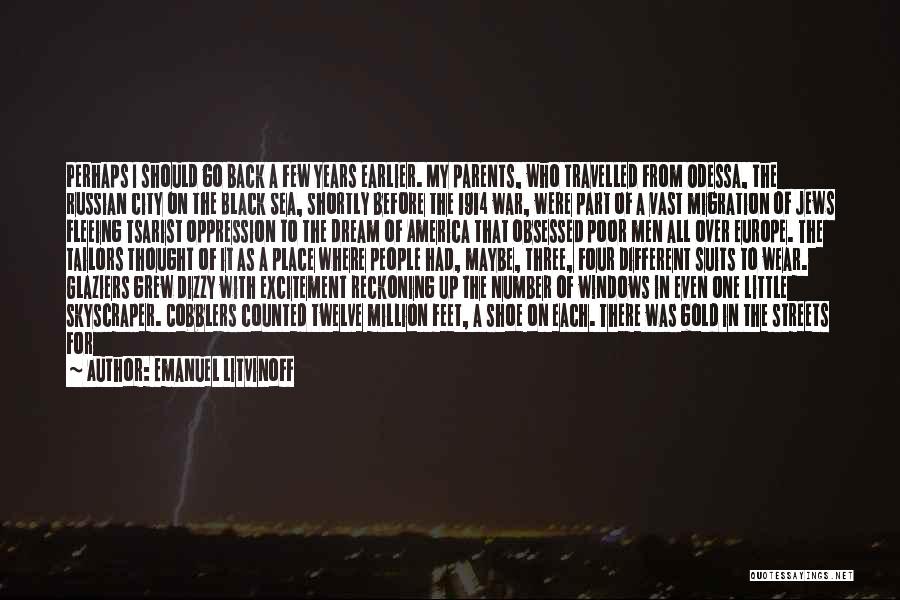
Perhaps I should go back a few years earlier. My parents, who travelled from Odessa, the Russian city on the Black Sea, shortly before the 1914 war, were part of a vast migration of Jews fleeing Tsarist oppression to the dream of America that obsessed poor men all over Europe. The tailors thought of it as a place where people had, maybe, three, four different suits to wear. Glaziers grew dizzy with excitement reckoning up the number of windows in even one little skyscraper. Cobblers counted twelve million feet, a shoe on each. There was gold in the streets for all trades; a meat dinner every single day. And Freedom. That was not something to be sneezed at, either.
But my parents never got to America. — Emanuel Litvinoff
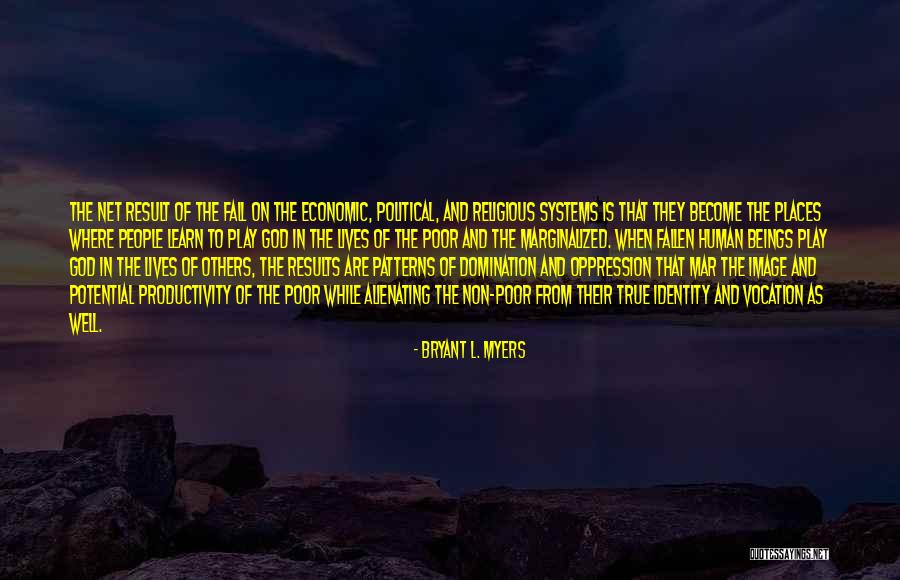
The net result of the fall on the economic, political, and religious systems is that they become the places where people learn to play god in the lives of the poor and the marginalized. When fallen human beings play god in the lives of others, the results are patterns of domination and oppression that mar the image and potential productivity of the poor while alienating the non-poor from their true identity and vocation as well. — Bryant L. Myers
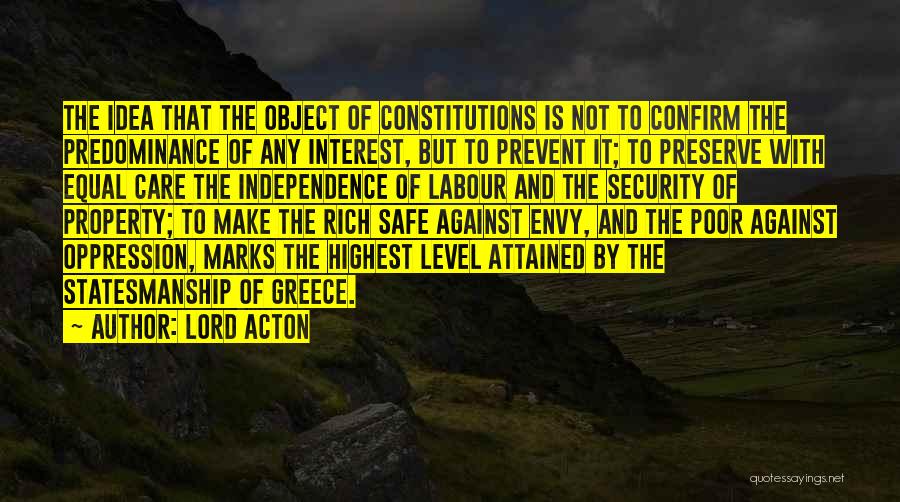
The idea that the object of constitutions is not to confirm the predominance of any interest, but to prevent it; to preserve with equal care the independence of labour and the security of property; to make the rich safe against envy, and the poor against oppression, marks the highest level attained by the statesmanship of Greece. — Lord Acton
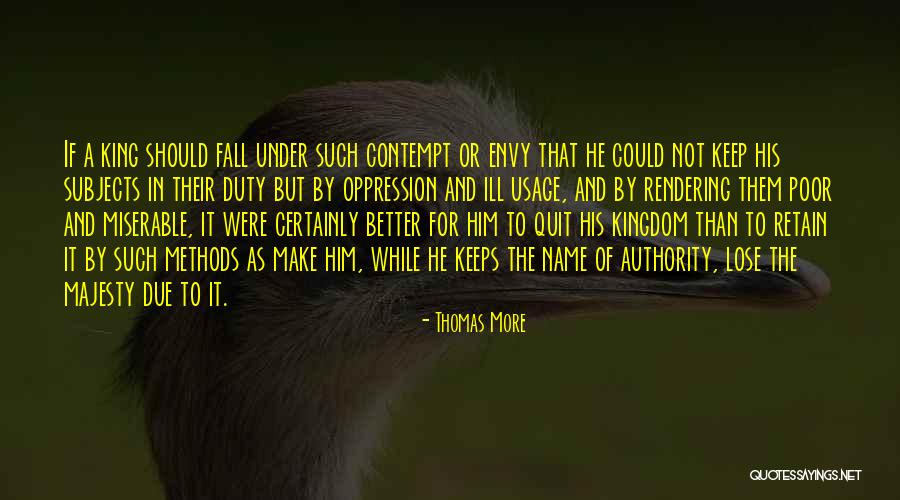
If a king should fall under such contempt or envy that he could not keep his subjects in their duty but by oppression and ill usage, and by rendering them poor and miserable, it were certainly better for him to quit his kingdom than to retain it by such methods as make him, while he keeps the name of authority, lose the majesty due to it. — Thomas More
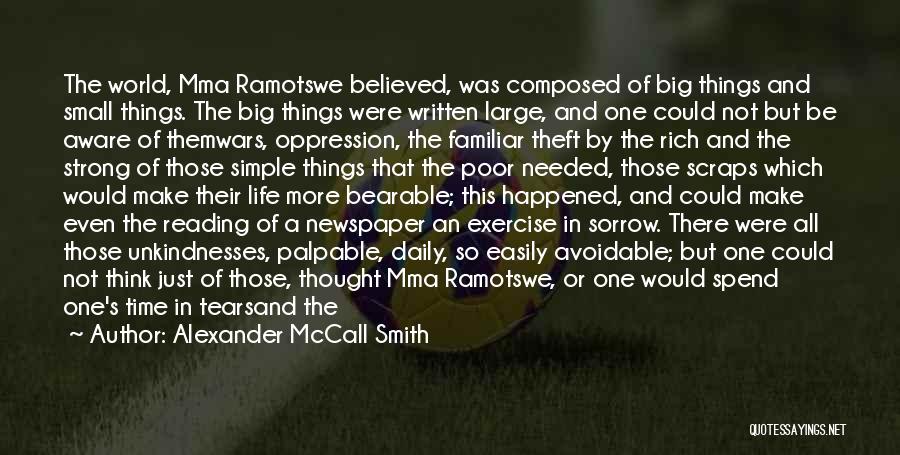
The world, Mma Ramotswe believed, was composed of big things and small things. The big things were written large, and one could not but be aware of them
wars, oppression, the familiar theft by the rich and the strong of those simple things that the poor needed, those scraps which would make their life more bearable; this happened, and could make even the reading of a newspaper an exercise in sorrow. There were all those unkindnesses, palpable, daily, so easily avoidable; but one could not think just of those, thought Mma Ramotswe, or one would spend one's time in tears
and the unkindnesses would continue. So the small things came into their own: small acts of helping others, if one could; small ways of making one's own life better: acts of love, acts of tea, acts of laughter. — Alexander McCall Smith
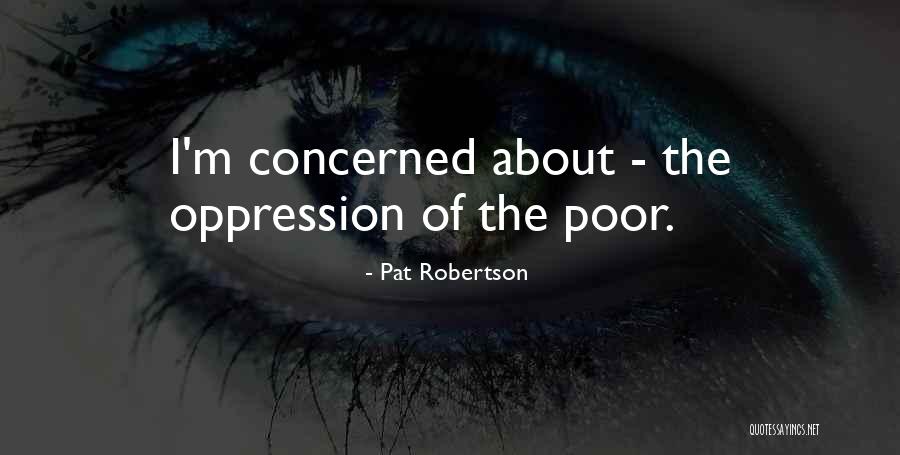
I'm concerned about - the oppression of the poor. — Pat Robertson
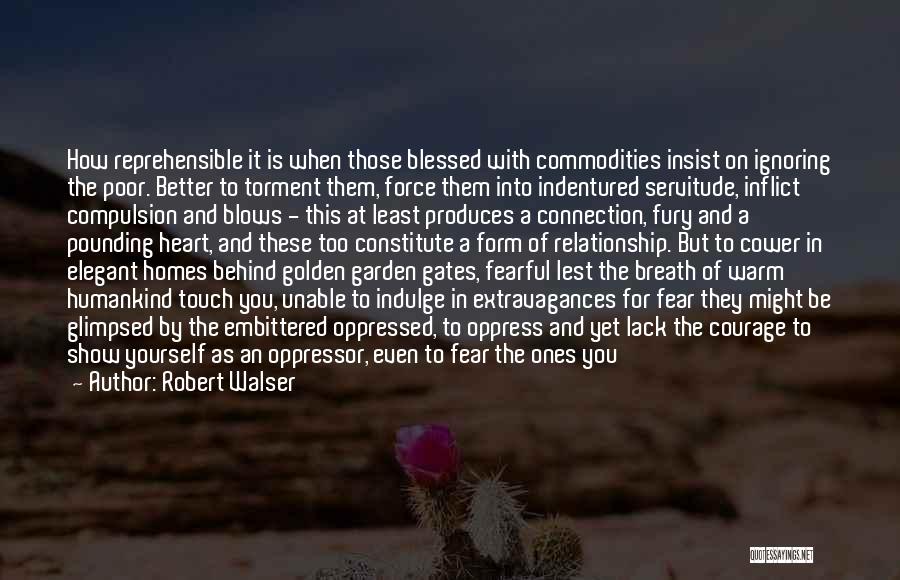
How reprehensible it is when those blessed with commodities insist on ignoring the poor. Better to torment them, force them into indentured servitude, inflict compulsion and blows - this at least produces a connection, fury and a pounding heart, and these too constitute a form of relationship. But to cower in elegant homes behind golden garden gates, fearful lest the breath of warm humankind touch you, unable to indulge in extravagances for fear they might be glimpsed by the embittered oppressed, to oppress and yet lack the courage to show yourself as an oppressor, even to fear the ones you are oppressing, feeling ill at ease in your own wealth and begrudging others their ease, to resort to disagreeable weapons that require neither true audacity nor manly courage, to have money, but only money, without splendor: That's what things look like in our cities at present — Robert Walser
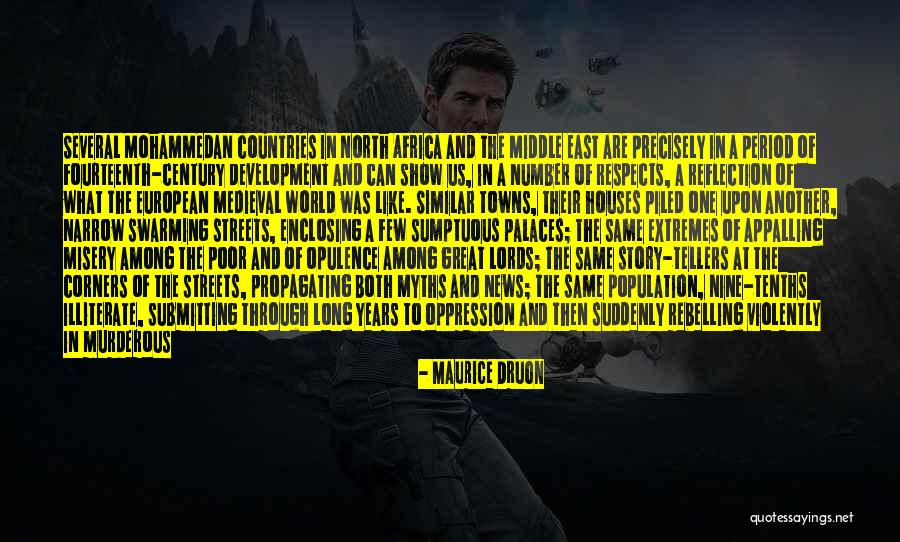
Several Mohammedan countries in North Africa and the Middle East are precisely in a period of fourteenth-century development and can show us, in a number of respects, a reflection of what the European medieval world was like. Similar towns, their houses piled one upon another, narrow swarming streets, enclosing a few sumptuous palaces; the same extremes of appalling misery among the poor and of opulence among great lords; the same story-tellers at the corners of the streets, propagating both myths and news; the same population, nine-tenths illiterate, submitting through long years to oppression and then suddenly rebelling violently in murderous panic; the same influence of religious conscience upon public affairs; the same fanaticism; the same intrigues among the powerful; the same hate among rival factions; the same plots so curiously ravelled that their solution lies only in the spilling of blood! — Maurice Druon
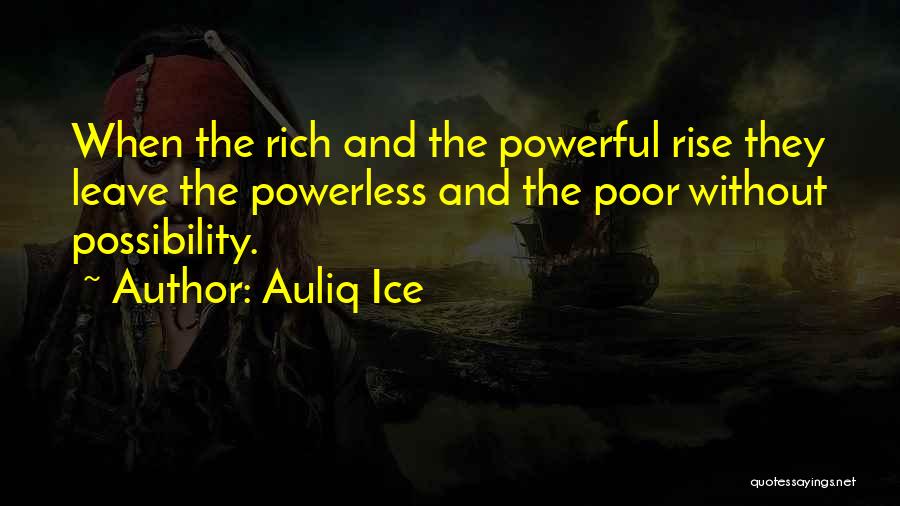
When the rich and the powerful rise they leave the powerless and the poor without possibility. — Auliq Ice
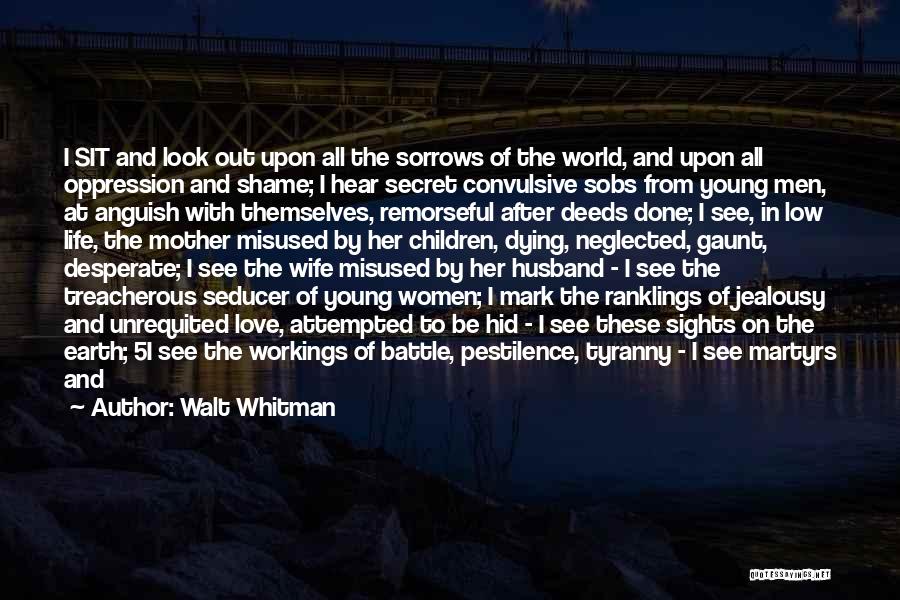
I SIT and look out upon all the sorrows of the world, and upon all oppression and shame;
I hear secret convulsive sobs from young men, at anguish with themselves, remorseful after deeds done;
I see, in low life, the mother misused by her children, dying, neglected, gaunt, desperate;
I see the wife misused by her husband - I see the treacherous seducer of young women;
I mark the ranklings of jealousy and unrequited love, attempted to be hid - I see these sights on the earth; 5
I see the workings of battle, pestilence, tyranny - I see martyrs and prisoners;
I observe a famine at sea - I observe the sailors casting lots who shall be kill'd, to preserve the lives of the rest;
I observe the slights and degradations cast by arrogant persons upon laborers, the poor, and upon negroes, and the like;
All these - All the meanness and agony without end, I sitting, look out upon,
See, hear, and am silent. — Walt Whitman
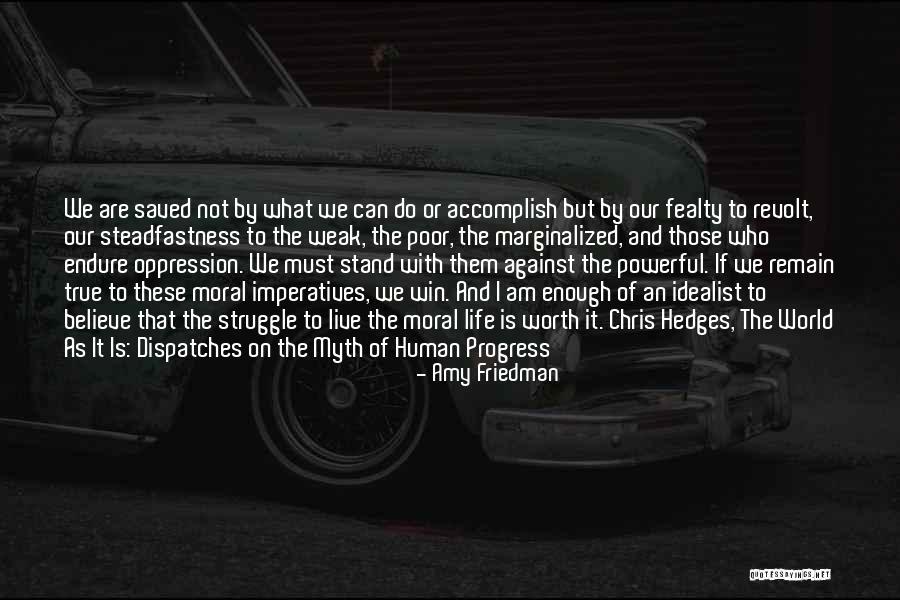
We are saved not by what we can do or accomplish but by our fealty to revolt, our steadfastness to the weak, the poor, the marginalized, and those who endure oppression. We must stand with them against the powerful. If we remain true to these moral imperatives, we win. And I am enough of an idealist to believe that the struggle to live the moral life is worth it. Chris Hedges, The World As It Is: Dispatches on the Myth of Human Progress — Amy Friedman
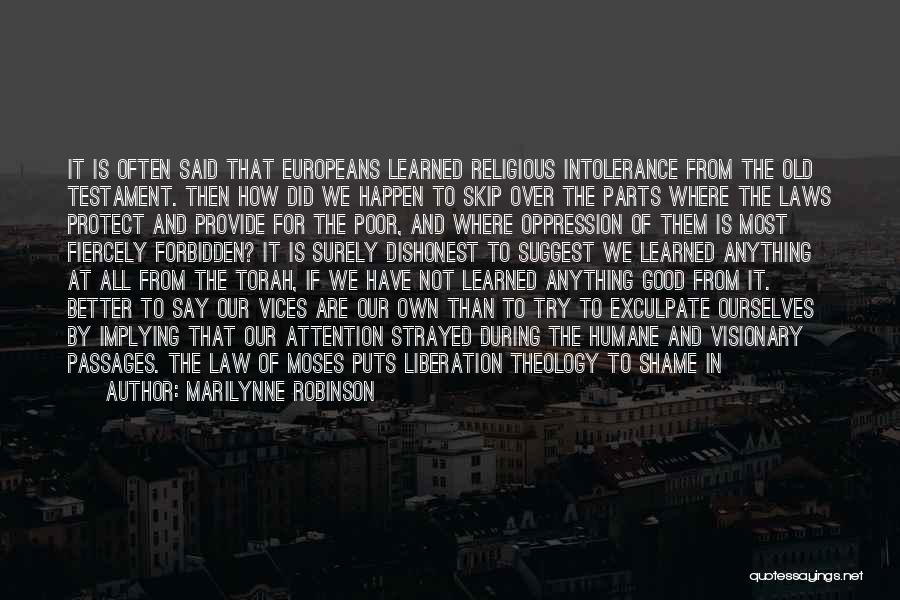
It is often said that Europeans learned religious intolerance from the Old Testament. Then how did we happen to skip over the parts where the laws protect and provide for the poor, and where oppression of them is most fiercely forbidden? It is surely dishonest to suggest we learned anything at all from the Torah, if we have not learned anything good from it. Better to say our vices are our own than to try to exculpate ourselves by implying that our attention strayed during the humane and visionary passages. The law of Moses puts liberation theology to shame in its passionate loyalty to the poor. — Marilynne Robinson
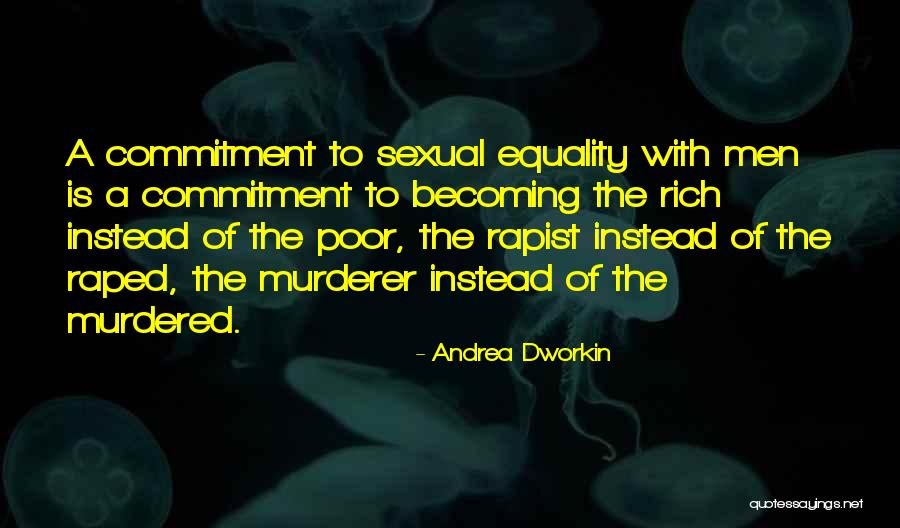
A commitment to sexual equality with men is a commitment to becoming the rich instead of the poor, the rapist instead of the raped, the murderer instead of the murdered. — Andrea Dworkin
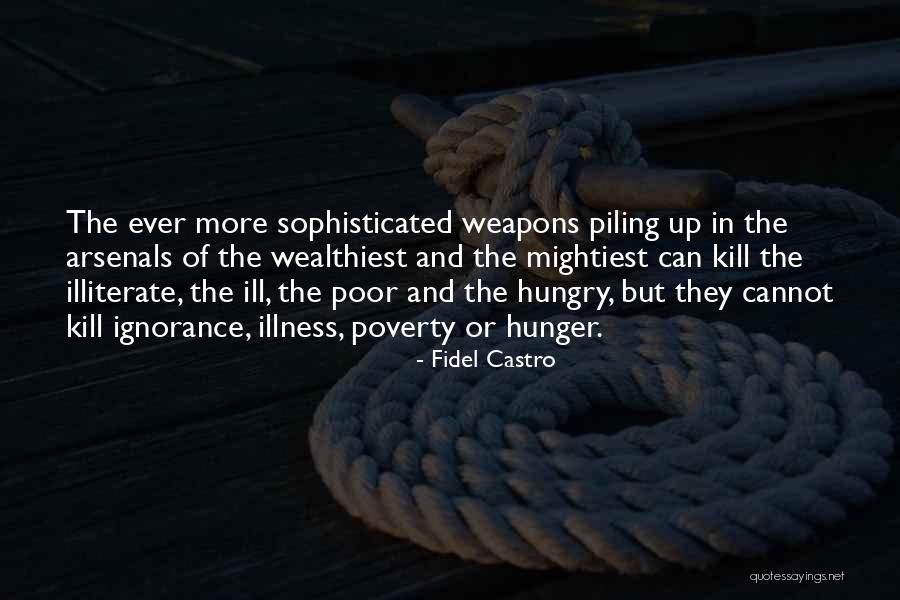
The ever more sophisticated weapons piling up in the arsenals of the wealthiest and the mightiest can kill the illiterate, the ill, the poor and the hungry, but they cannot kill ignorance, illness, poverty or hunger. — Fidel Castro
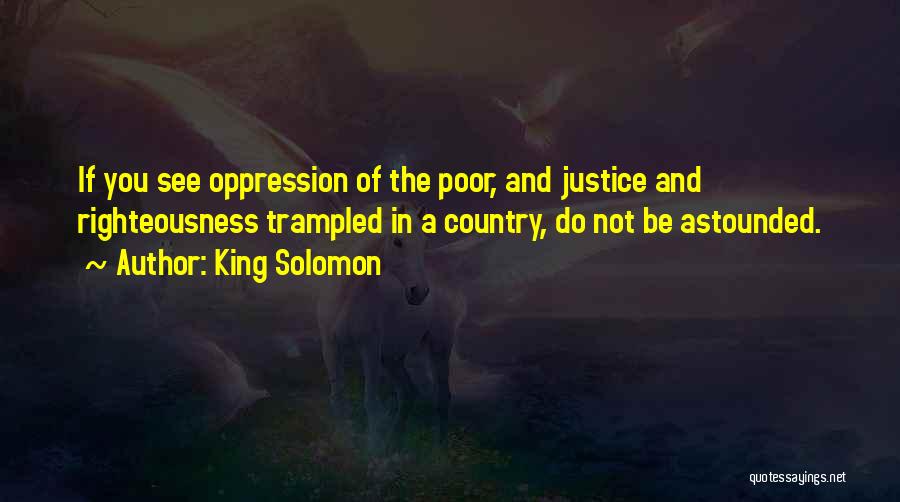
If you see oppression of the poor, and justice and righteousness trampled in a country, do not be astounded. — King Solomon
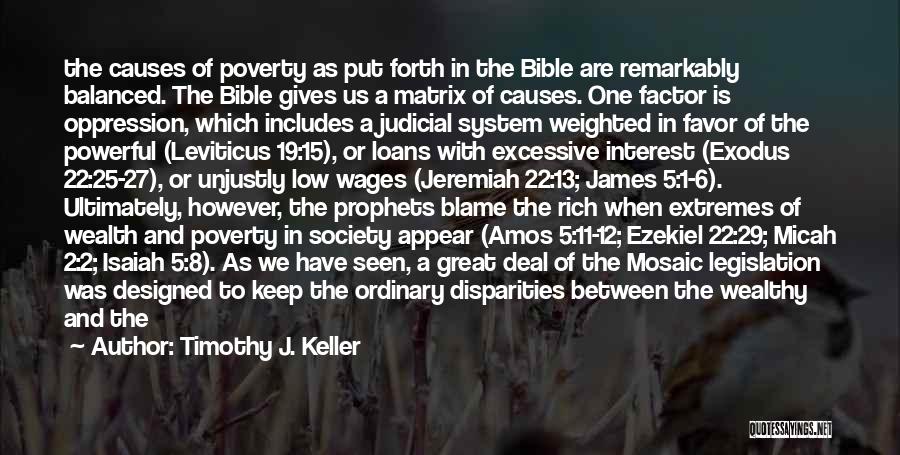
the causes of poverty as put forth in the Bible are remarkably balanced. The Bible gives us a matrix of causes. One factor is oppression, which includes a judicial system weighted in favor of the powerful (Leviticus 19:15), or loans with excessive interest (Exodus 22:25-27), or unjustly low wages (Jeremiah 22:13; James 5:1-6). Ultimately, however, the prophets blame the rich when extremes of wealth and poverty in society appear (Amos 5:11-12; Ezekiel 22:29; Micah 2:2; Isaiah 5:8). As we have seen, a great deal of the Mosaic legislation was designed to keep the ordinary disparities between the wealthy and the poor from becoming aggravated and extreme. Therefore, whenever great disparities arose, the prophets assumed that to some degree it was the result of selfish individualism rather than concern with the common good. — Timothy J. Keller
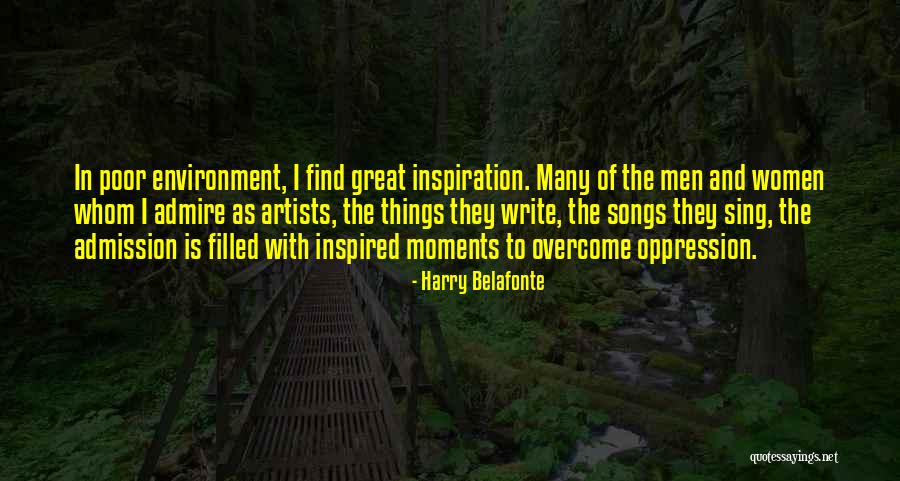
In poor environment, I find great inspiration. Many of the men and women whom I admire as artists, the things they write, the songs they sing, the admission is filled with inspired moments to overcome oppression. — Harry Belafonte
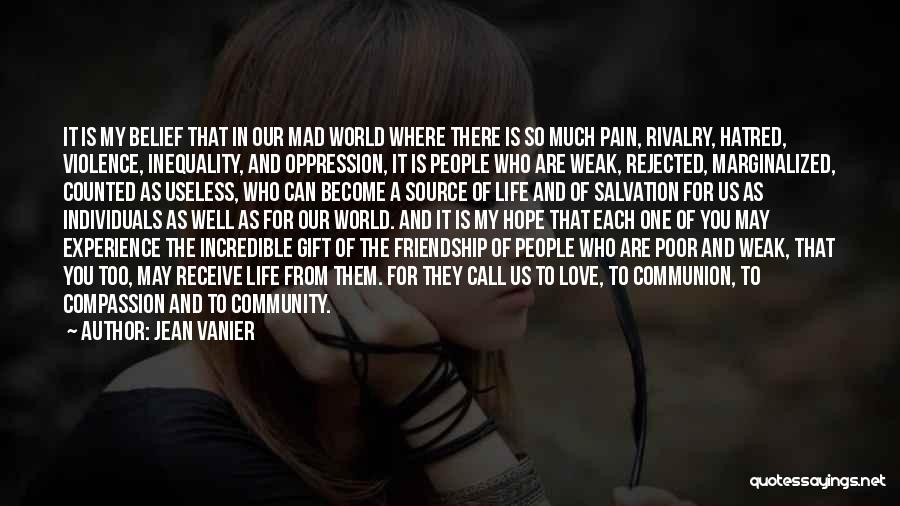
It is my belief that in our mad world where there is so much pain, rivalry, hatred, violence, inequality, and oppression, it is people who are weak, rejected, marginalized, counted as useless, who can become a source of life and of salvation for us as individuals as well as for our world. And it is my hope that each one of you may experience the incredible gift of the friendship of people who are poor and weak, that you too, may receive life from them. For they call us to love, to communion, to compassion and to community. — Jean Vanier





